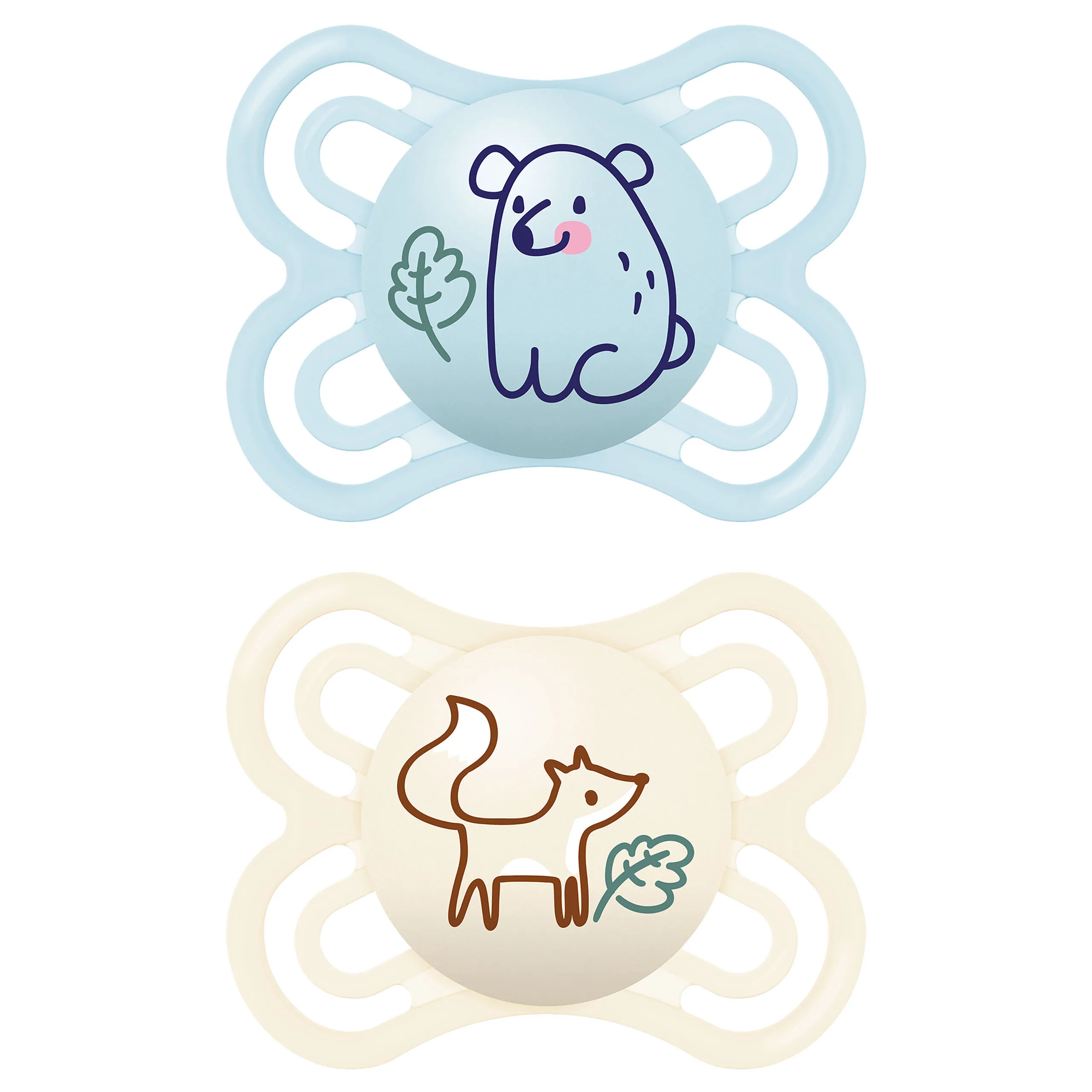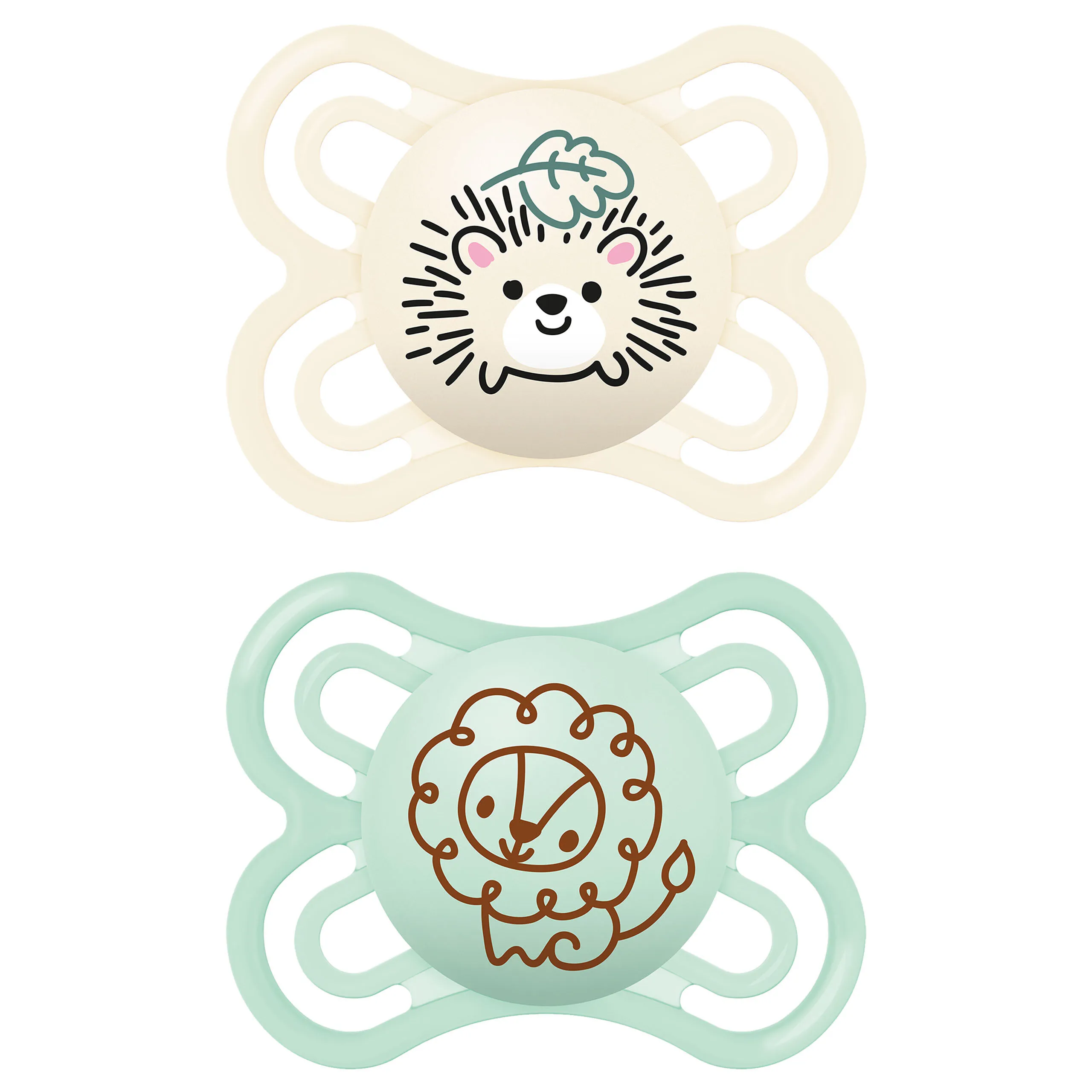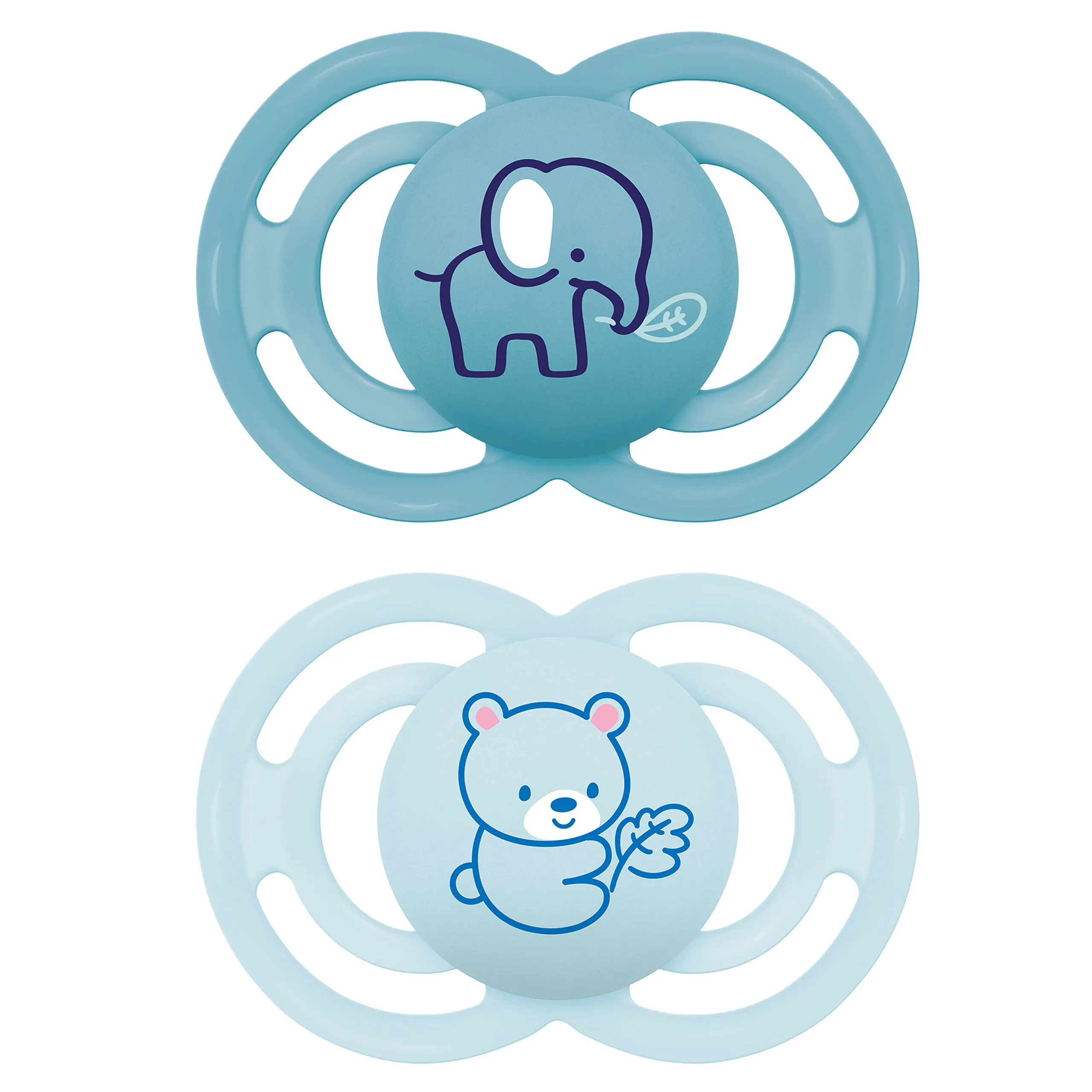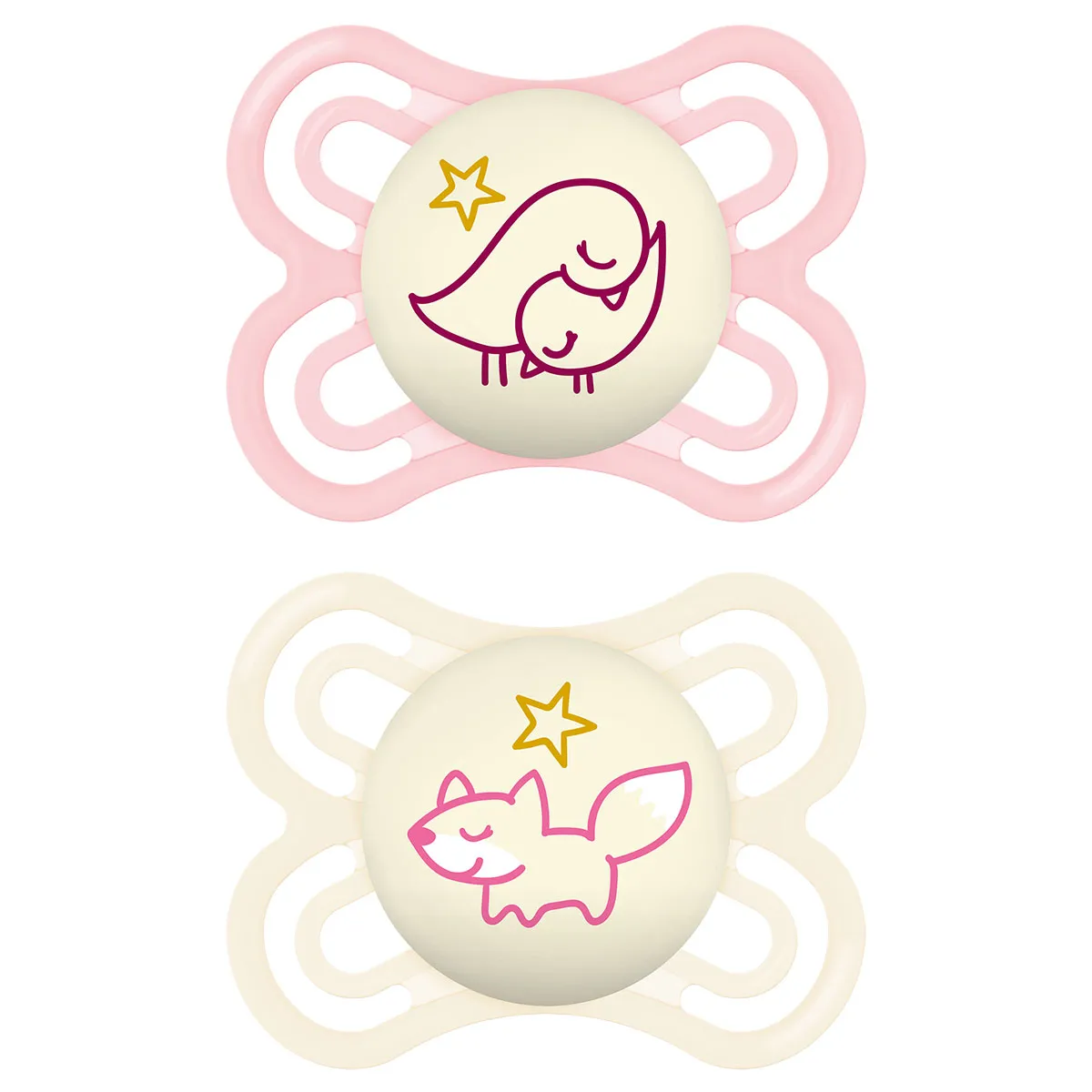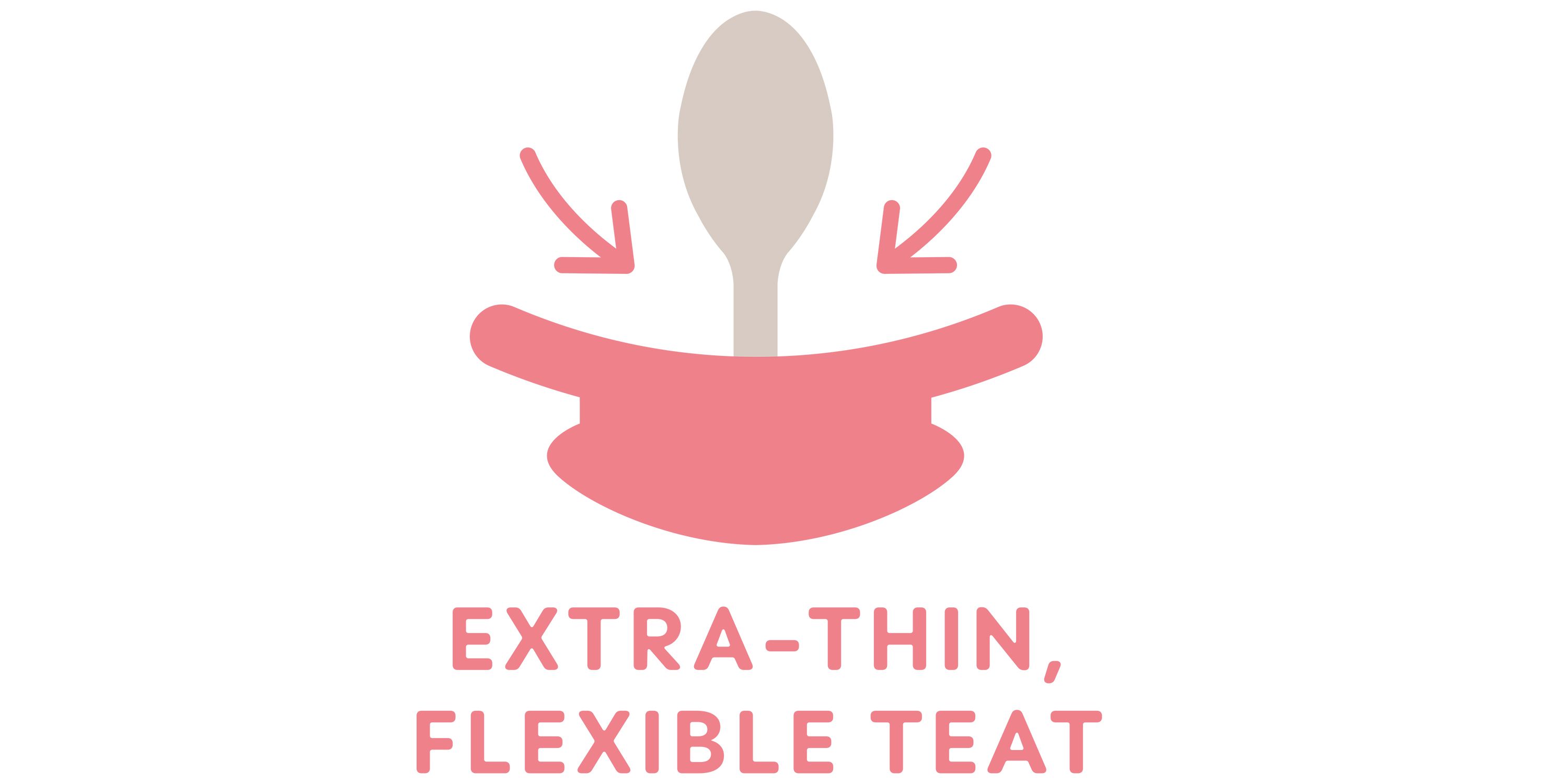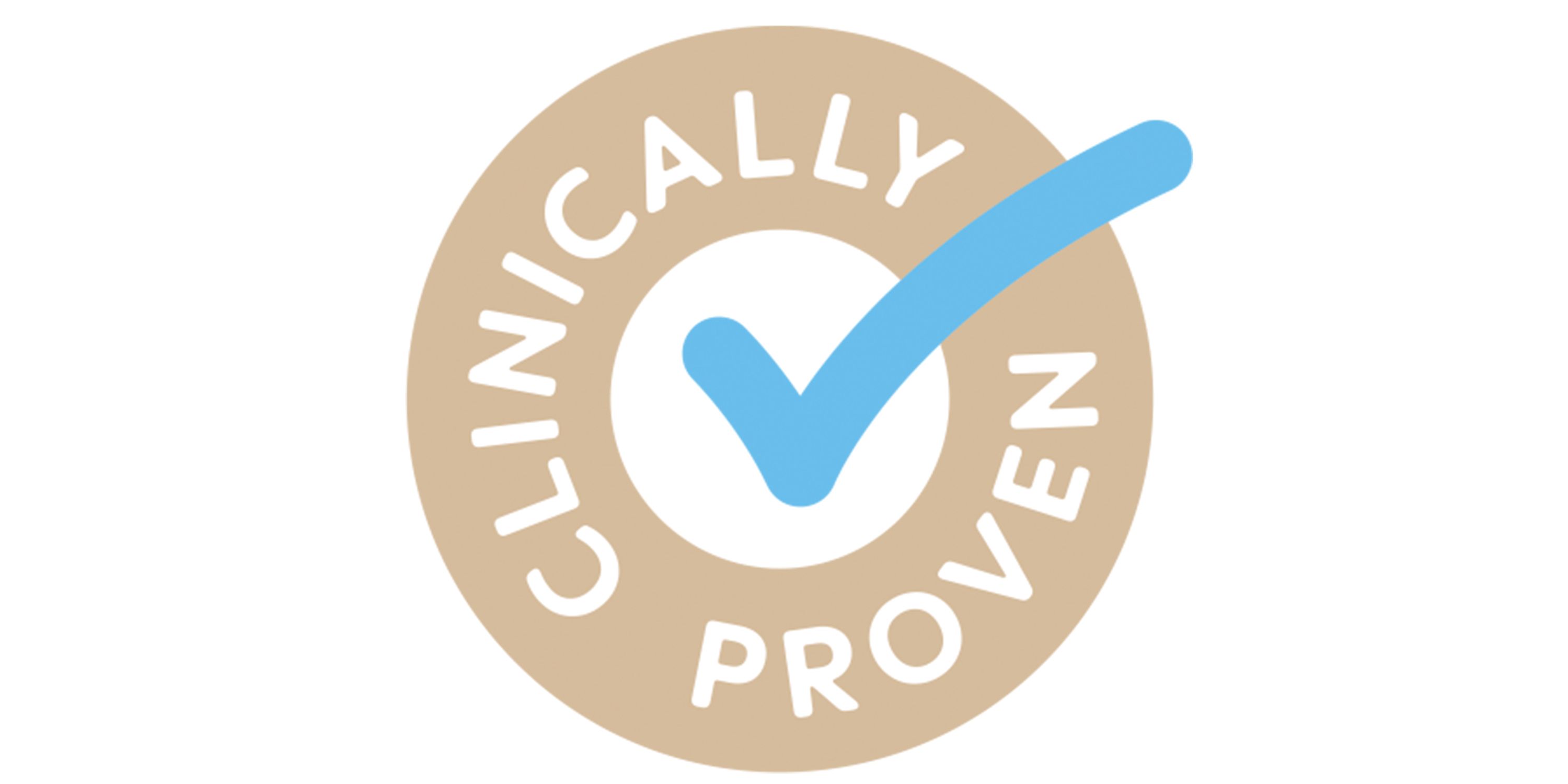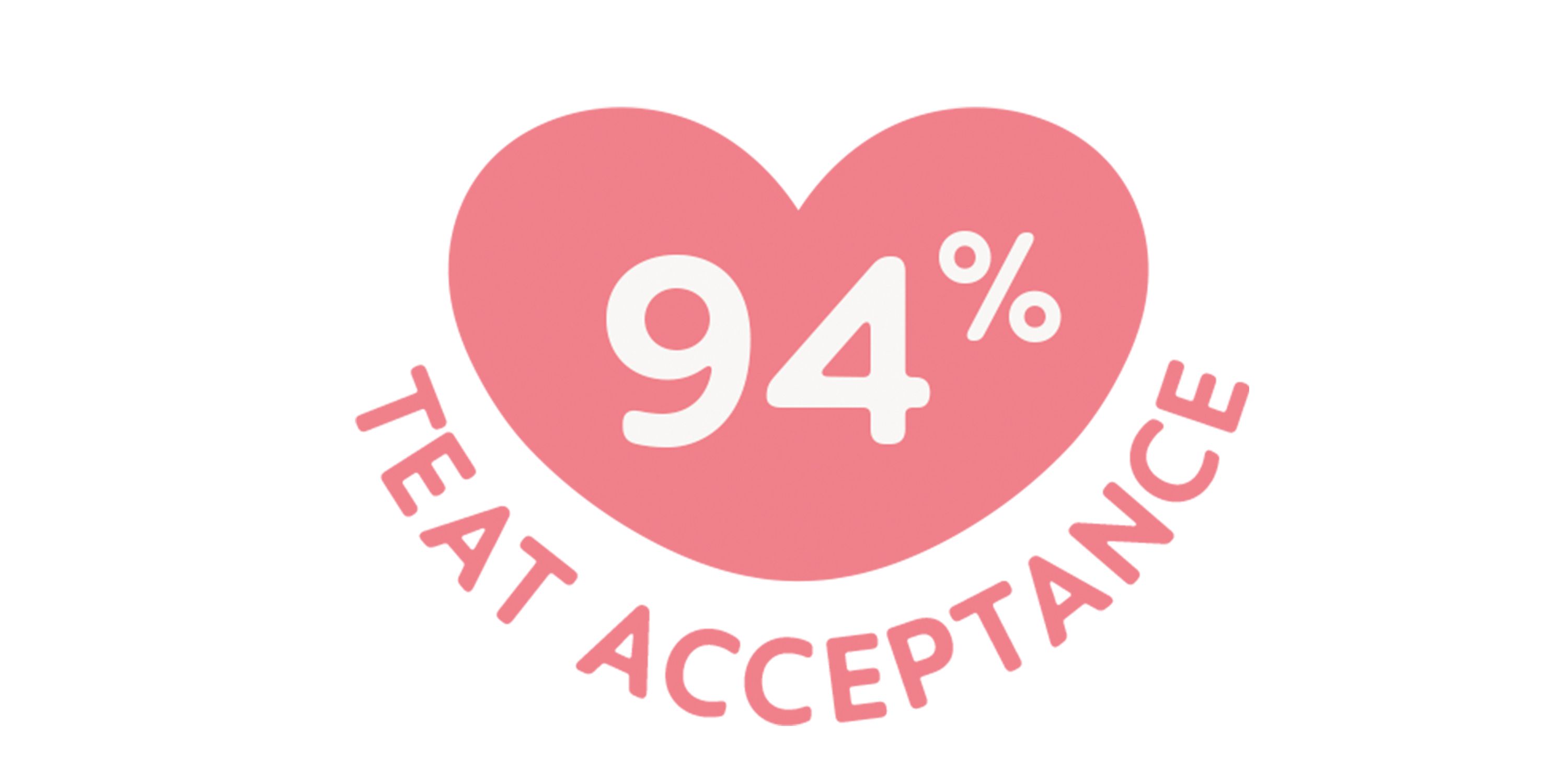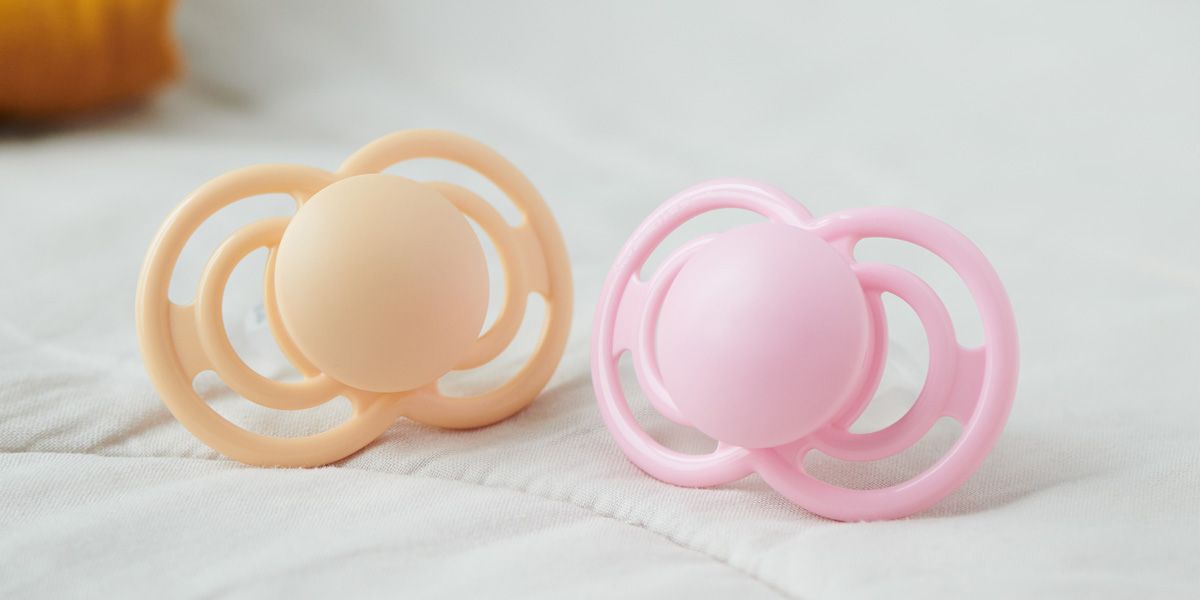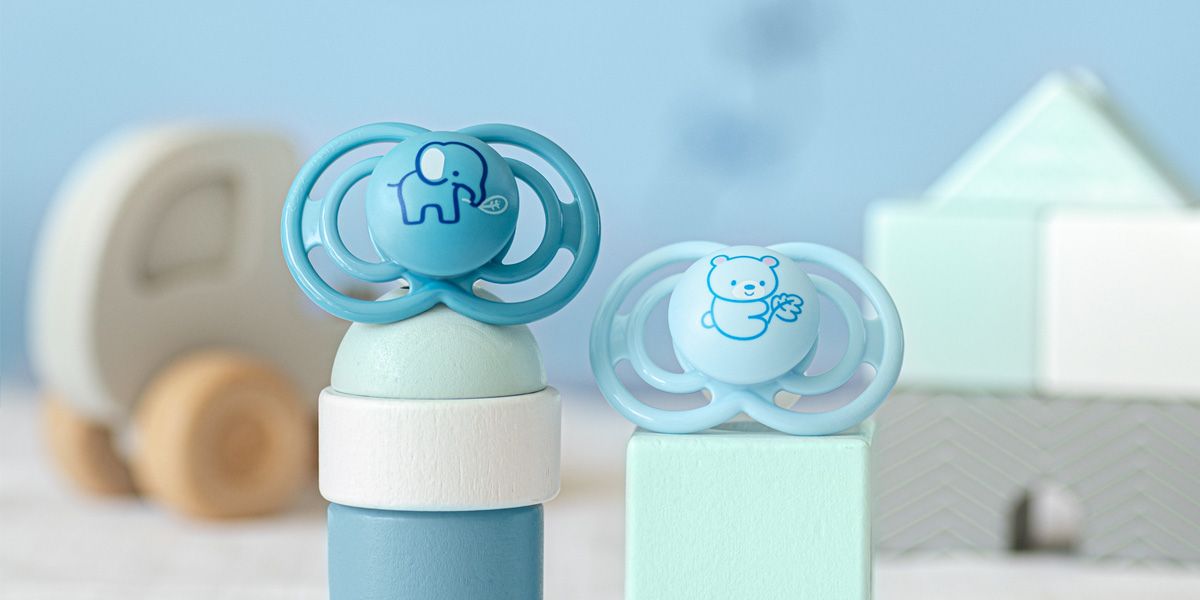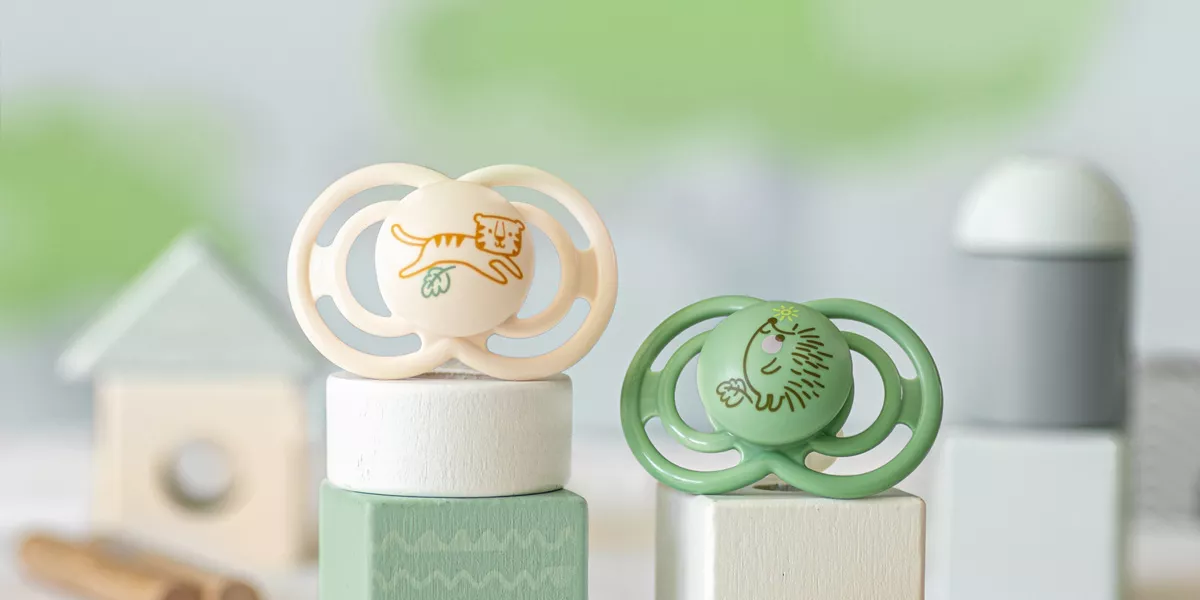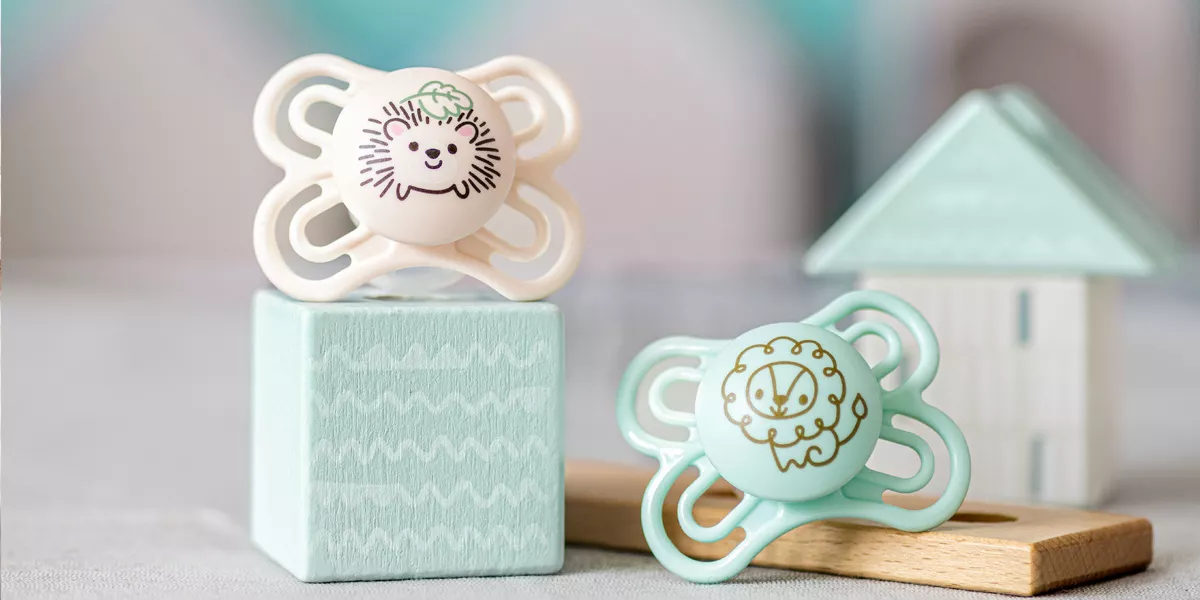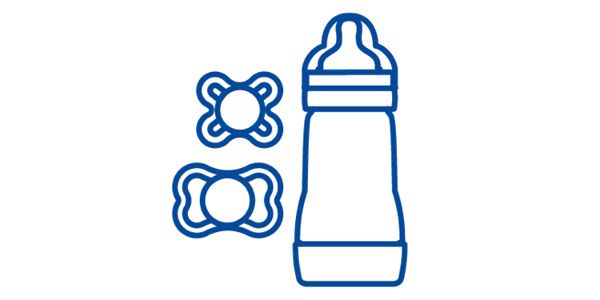We have developed the MAM Perfect pacifier with a patented extra-thin and flexible teat for more natural mouth closure to reduce the risk of misaligned teeth and support a healthy dental development for your baby.
MAM Perfect Pacifier Benefits
Our MAM Perfect unique teat shape is 60% thinner and 4x more flexible than comparable pacifier teats.¹ This extra-thin pacifier teat allows your baby to close the mouth in a more natural position, enabling a more natural tongue position, which is important for speech development.
MAM Perfect Pacifier age ranges
At MAM, we believe in providing the best care for your baby at every stage of their development. That's why the MAM Perfect pacifier is available in different sizes, ensuring a perfect support throughout your baby’s dental development.
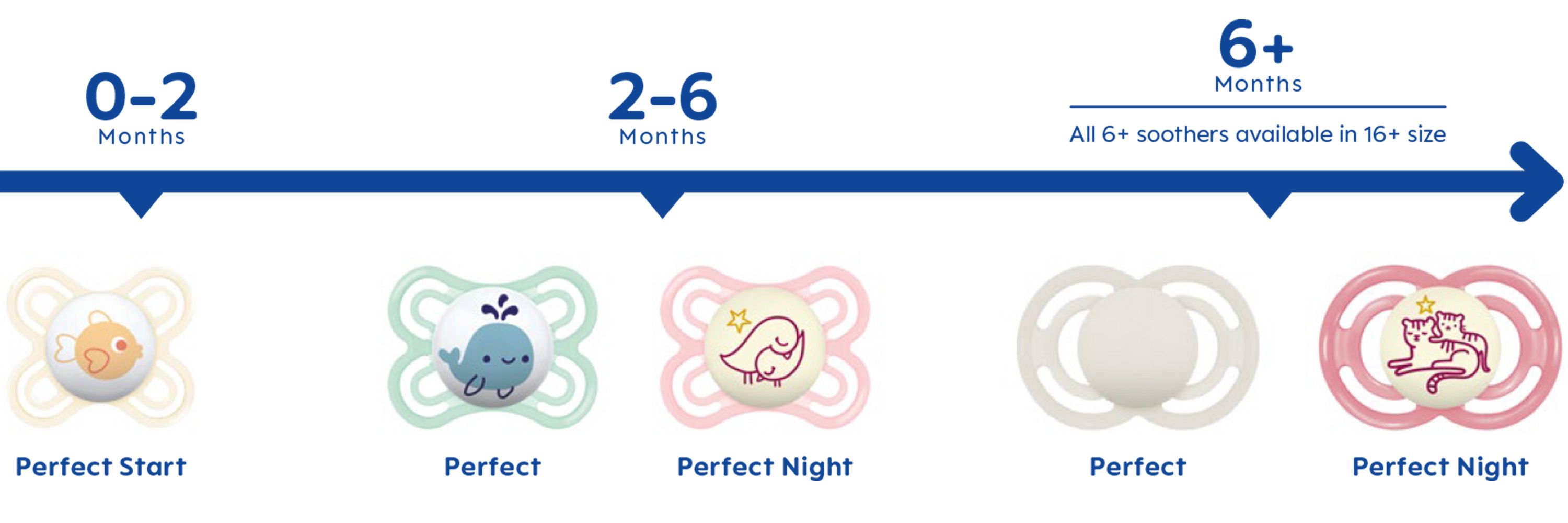
How to sterilize a pacifier?
The MAM Perfect pacifier is packed in a pacifier sterilizer box that is a handy carrying case and lets you sterilize your pacifiers in a few simple steps. The sterilizing function of this box enables to disinfect pacifiers hygienically and quickly in the microwave in an energy-saving process. Using the sterilizer box saves up to 77% of energy and CO². 4
Disinfected in 3 minutes – for up to 48 hours:
- Fill box with water to the 25ml mark
- Place pacifier in the box with the holder
- Close box and heat in microwave for 3 minutes at 750-1000 watts
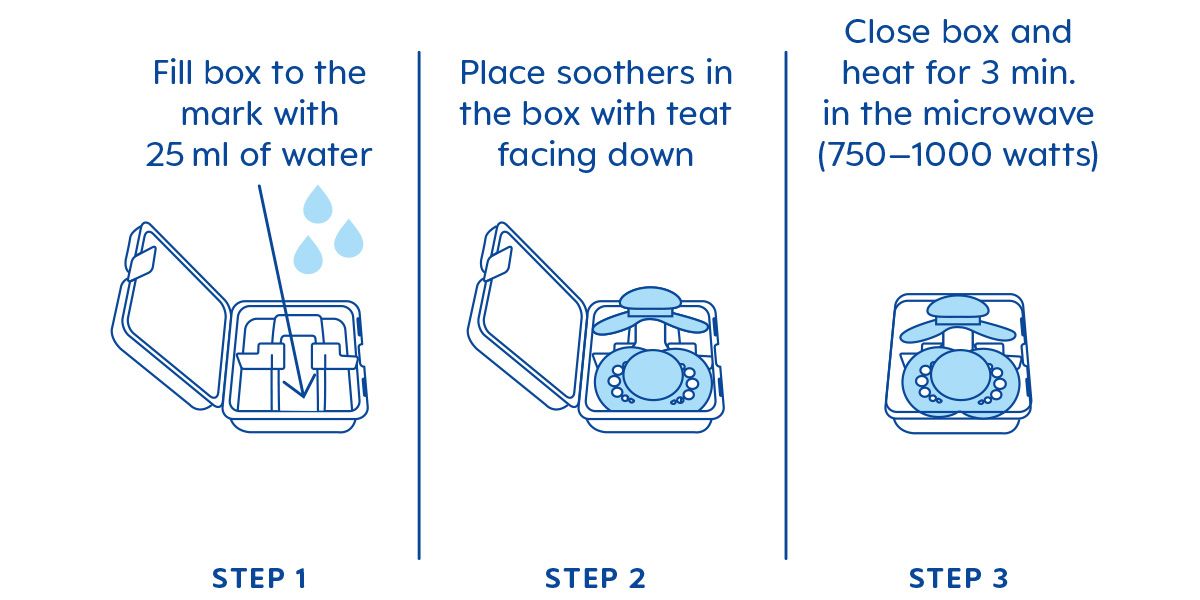
Sustainability at MAM
Sources:
1.) Scientific reports from Wild Hi-Precision institute verify that the MAM Perfect’s teat neck is on average 60% thinner. A series of tests by the University Clinic of Dentistry Vienna confirm that it is also on average 4 times more flexible than comparable pacifiers. (Between: 32-83% thinner and 1.1-19.5 times more flexible than regular silicone pacifiers).
2.) Y. Wagner, R. Heinrich-Weltzien, “Effect of a thin-neck pacifier on primary dentition: a randomized controlled trial”, Orthodontics & Craniofacial Research, Volume 19, Issue 3, pages 127–136, August 2016
3.) Market research 2010-2022, tested with 1,541 babies.
4.) Global Product Carbon Footprint Study, Austria 2013, conducted by denkstatt.
5.) Based on the ISCC PLUS certified mass balance approach, bio-circular raw materials can be traced back to vegetable oils as well as waste and residues from the production of plant-based oils.



